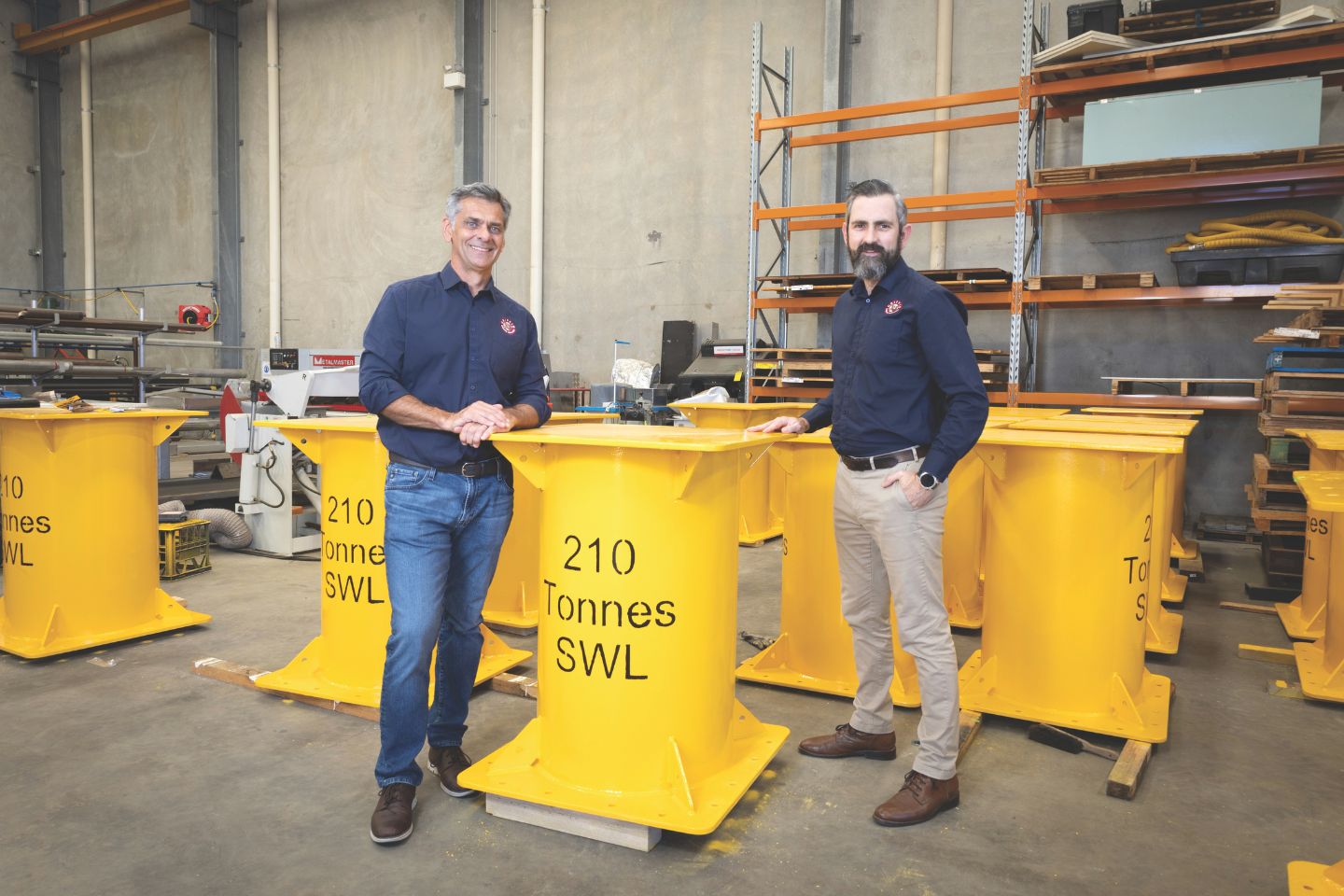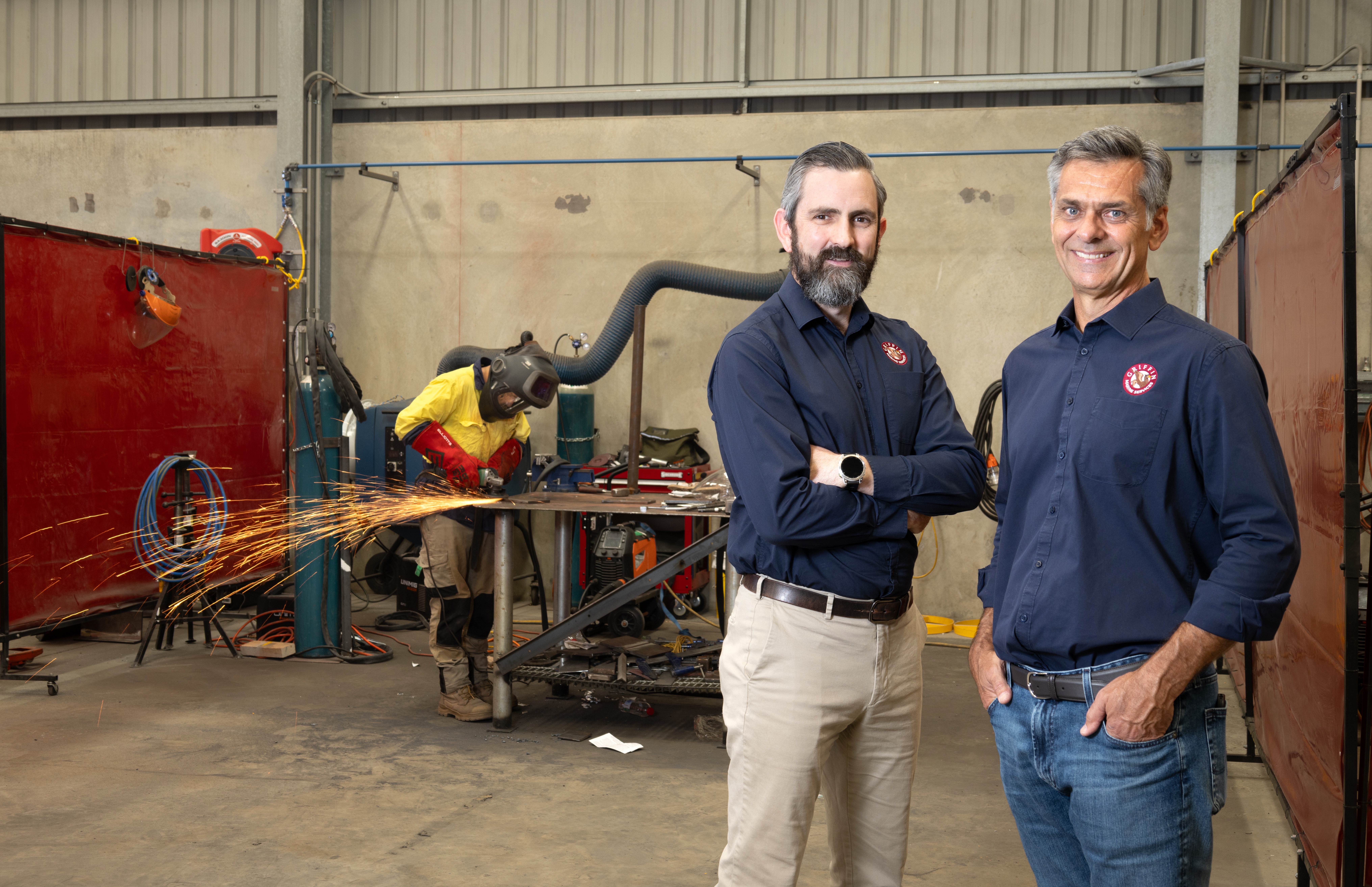Yangebup-based operation is poised to take advantage of the significant growth in defence sector spending.


More than three years after taking a majority stake in a small defence-focused contractor, Michael Sertorio is confident there are big opportunities for Perth-based Griffin Marine Services.
With bases in Cairns, Darwin and Sydney, and its Western Australian headquarters in Yangebup, Griffin is already on the ground in most places the Royal Australian Navy might need its services; or least as close as it can get, given in some circumstances the work may need to be done at sea.
More importantly, according to Mr Sertorio, co-owner and director, the business is poised to take advantage of the significant growth in spending expected in the sector as Australia invests in its defence (notably the Aukus submarine program) but also investment in landing craft, frigates and the bases to house these vessels.
Griffin has made investments of its own, building up the systems required to tender and deliver on exacting demands of defence contracts, as well the management needed to expand the business.
On the face of it, Griffin might not have been the most obvious private equity play when Mr Sertorio entered the scene in 2021, taking a 60 per cent stake in a business turning over $10 million a year.
Started in Sydney 10 years ago by a couple of hands-on operators, Troy Ranford and Marty Stroud, the business had flourished, offering specialist services for installations, upgrades and repairs.
However, its founders were stretched to their capacity and without an obvious path to exit.
“They literally started as two guys with welding machines they got hands on ten years ago,” Mr Sertorio told Business News.
“And then [they] just went really hard at it and did great work, and it flourished from there.
“Then Troy came back here and got WA going, and Marty, off the back of an opportunity, went to Darwin.”
By 2021, that business model was struggling.
“Three and a half years ago they got it to a point of burning out a bit and struggling with how to maintain that growth and scale,” Mr Sertorio said.
“And that’s where I came across them and bought a majority stake in the business.
“So, they continued doing what they did and I helped, particularly in the background, with all the systems and people support to enable the business to continue on that trajectory.”
A former human resources manager in the banking sector, Mr Sertorio has a track record taking this approach across a broad range of businesses, from agribusiness to labour hire.
As one his earliest success stories, he cites the expansion of WA horticultural produce player Mercer Mooney, a family enterprise, and its 2007 sale to national operator Moraitis Group.
Mr Sertorio retained a minor holding in Moraitis, which became majority held by Hong Kong-listed Chevalier Group in 2013, in a deal that valued it at $200 million.

Michael Sertorio (left) with Chris Stoll in the Yangebup workshop. Photo: Michael O’Brien
He remains linked to the sector as an independent director of horticulture-focused Fruit West Co-operative, which is licensed to commercialise the Bravo apple.
After Mercer Mooney, Mr Sertorio led labour hire group Global Industrial Services, which was sold to ASX-listed Global Construction Services, now SRG Global, for $42 million in 2011.
Mr Sertorio emerged from that transaction as a substantial shareholder in GCS and became a director.
He was next involved in listed technology company Decimal Software, where he was the biggest shareholder when it was taken over by private technology and infrastructure group Sargon Capital.
Griffin is Mr Sertorio’s latest project and he claims it is already paying dividends.
Revenue has tripled since 2021 to about $30 million and the business is on the hunt for bolt-on acquisitions that might fit its strategic objectives in niche associated markets, or smooth the way for a move into land-based services and some specialist manufacturing.
New investment was provided to secure best-in-class technology, replacing the typical rudimentary software most small businesses use, and outgrow.
In addition, key managerial staff were onboarded, culminating in the appointment of Chris Stoll as chief executive in late 2023.
Mr Stoll is a former Navy engineer with a decade of senior management experience at key defence contractors such as BAE Systems, Austal, Naval Ship Management and Babcock.
“So, we’ve got general management in each state, functional folks, with Chris, of course, leading them,” Mr Sertorio said.
“We’ve got this terrific group of people together that share a common culture. ‘Trusted to make it happen’ is what we say, and they embrace that.
“And then all the sort of processes around replicating that down the line with our supervisors and all our staff; and maintaining that culture.
“Pretty early on we invested in getting them all through leadership development from sort of manager level through to leading hands, and getting them exposed to that culture and that skill set
“A lot of the people in these types of industrial businesses haven’t had that kind of management development.
“They’ve been great tradespeople and all of a sudden they’re a leading hand, and then they’re … a supervisor.”
Other marine sectors also need Griffin’s skills, according to Mr Stoll.
He said about 30 per cent of the business’s turnover came outside of defence, in commercial shipping and even private yachts.
“For instance, we had a crew of six who spent three and a half weeks on a Royal Caribbean cruise ship earlier [last] year, doing some fuel oil system repairs while the ship was at sea,” Mr Stoll told Business News.
He said Griffin’s key point of difference was its welding expertise, including in aluminium, which was an important aspect of marine repairs and maintenance, given the challenges of the maritime environment and the demands of insurers.
“I think the primary IP is the breadth of our welding qualifications. That’s probably the one thing that really does stand out,” Mr Stoll said.
“Defence particularly, and a lot of commercial clients as well, require welding to be done to what we call class, so DNV, or Lloyd’s, or American Bureau of Shipping.
“There’s a bunch of others as well, and they have their own specific standards, depending on which ship it is.
“We’ve got a fairly extensive library of welding qualifications that enable us to do work on most ships.”
Mr Sertorio is quick to add that the addition of layers of technology and management on top of this skill set has not taken away from the can-do culture created by Griffin’s founders.
“We really have a reputation for getting it done and getting it done quickly,” he said.
“A lot of our work is urgent or in entire timeframes: getting ships back to sea, fixing stuff that’s broken.
“That was part of [the founders’] IP. Apart from the quality and qualifications, it was their ability to go to the hard places, do the hard work, get it done quickly and meet all the requirements with documentation and quality certification.
“So that’s still very much at the core of our value proposition.
“Everyone will say the same thing, but not everyone does it.”







